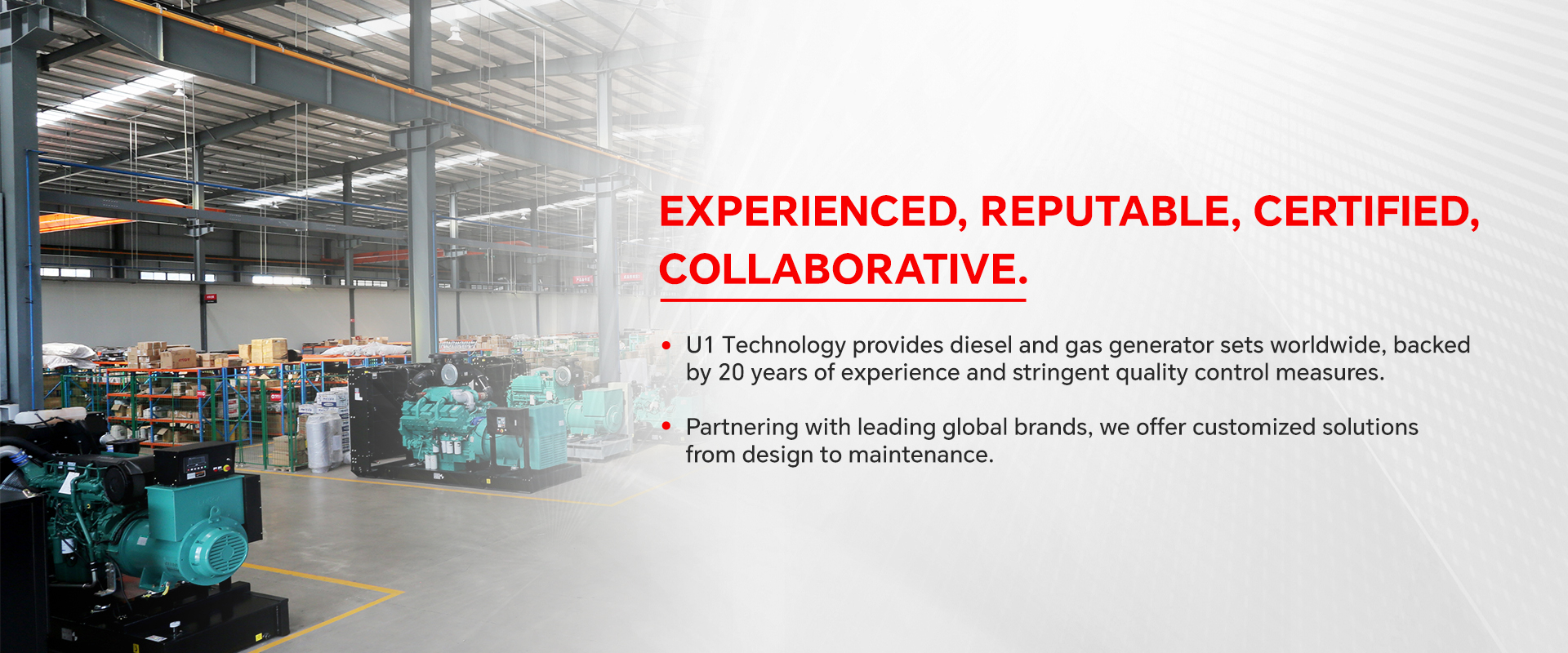In the realm of backup power generation, two prominent options stand out: gas and diesel generators. In the event the power goes out, and the need for it might be critical, choosing the right generator set may make all the difference. But wait, how can you decide between natural gas and diesel generators? Each has its own group of pros and cons, and the choice ultimately is dependent upon your unique needs and circumstances.

In this article, we are going to look into the distinctive features, advantages, and downsides of gas and heavy duty diesel generators sets, making it possible to create a well-informed decision where option aligns best with your needs.
Gas main Generators
Advantages
Cleaner Emissions: One of the first benefits of propane generators is the lower environmental impact. When propane burns, it makes fewer harmful emissions, including particulate matter, nitrogen oxides, and sulphur dioxide, when compared to a diesel genset. This may cause gas generators an eco-friendly choice for those worried about air quality and environmental sustainability.
Cost-Effective Fuel: Gas is often more affordable than diesel fuel. The price savings may be significant in the lon run, particularly if want to takes place generator frequently. Furthermore, the availability of propane is commonly more stable, reducing price fluctuations.
Less Maintenance: Propane generators typically require less maintenance than their diesel counterparts. This results from the cleaner-burning nature of gas main, which ends up in fewer deposits and soot buildup inside the engine, extending the generator’s lifespan.
Quieter Operation: Gas generators are known for their quieter operation. This can be a vital consideration in areas and settings where noise pollution must be minimized.
Disadvantages
Limited Fuel Storage: A drawback of gas main generators is their reliance on a consistent supply of gas. This is problematic during extended power outages or even in remote places that an even propane supply is probably not available.
Lower Energy Density: Natural gas carries a lower energy density in comparison to diesel, meaning you could possibly need a larger storage capacity or maybe more frequent refuelling for the same power output.
Lower Fuel Efficiency: Gas generators usually are less fuel-efficient than diesel generators, which may increase operational costs in the long run.
Lower Portability: As a result of requirement for a dedicated propane supply, these generators are less portable and versatile than diesel generators.
Diesel Generators
Advantages
High Energy Density: Diesel fuel is recognized for its high energy density. Therefore diesel generators can provide more power in a smaller package, making them suited to applications where space is restricted.
Fuel Storage: Diesel generators hold the advantage of being able to store fuel for longer periods without degradation. This may cause them the best choice for backup power in remote locations and during long-term power outages.
Fuel Efficiency: Diesel generators provide fuel efficiency, consuming less fuel for the same power output as gas main generators. This leads to lower operational costs.
Greater Reliability: Diesel engines are normally better quality and durable, be responsible for greater reliability in demanding conditions. They are often the go-to decision for mission-critical applications.
Disadvantages
Emissions and Environmental Impact: Diesel generators emit higher numbers of pollutants, including nitrogen oxides and particulate matter, which may have uncomfortable side effects on quality of air and public health. Stricter emissions regulations are already carried out to mitigate these issues.
Noise Levels: Diesel generators are often noisier than natural gas generators, which can be a concern in residential areas or where environmental noise is often a consideration.
Fuel Availability and value: Diesel fuel can be higher priced and at the mercy of price fluctuations. Additionally, storing bulk of diesel fuel can pose safety and environmental risks.
Maintenance Requirements: Diesel generators typically want more frequent maintenance on account of soot and carbon buildup within the engine, that may raise the total cost of ownership.
When you ought to Choose Gas Generators?
Environmental Concerns: In case you prioritize environmental sustainability and cleaner emissions, an all-natural gas generator could be the strategy to use.
Cost Savings: If you’re seeking to reduce fuel costs in the lon run and also have access to a trusted propane supply, natural gas generators could be more cost-effective.
Quiet Operation: In residential areas or places where noise levels should be kept low, natural gas generators would be the quieter choice.
Less Frequent Use: In case your generator serves as a backup for occasional power outages, the lower maintenance requirements of gas main generators make them an opportune option.
When you should Choose Diesel Generators?
High Power Requirements: If you want a high-power output in a compact package, diesel generators, with their high energy density, are the better option.
Reliability: For mission-critical applications where reliability is paramount, such as data centres or healthcare facilities, diesel generators in many cases are preferred due to their robust and durable engines.
Remote Locations: In areas with limited entry to a natural gas supply or during long-term power outages, diesel generators using their reliable fuel storage include the more practical choice.
Frequent Use: In case your generator will dsicover frequent use so you prioritize fuel efficiency, diesel generators can be cheaper in the long run.
Conclusion
The option between propane and diesel generators is determined by your distinct requirements, budget, and environmental concerns. Both forms of generators have their own advantages and disadvantages, as well as the secret’s to softly evaluate your needs and priorities before you purchase. Additionally, be sure to understand local regulations and emissions standards which could affect your selection.
More information about biogas generator see the best webpage

